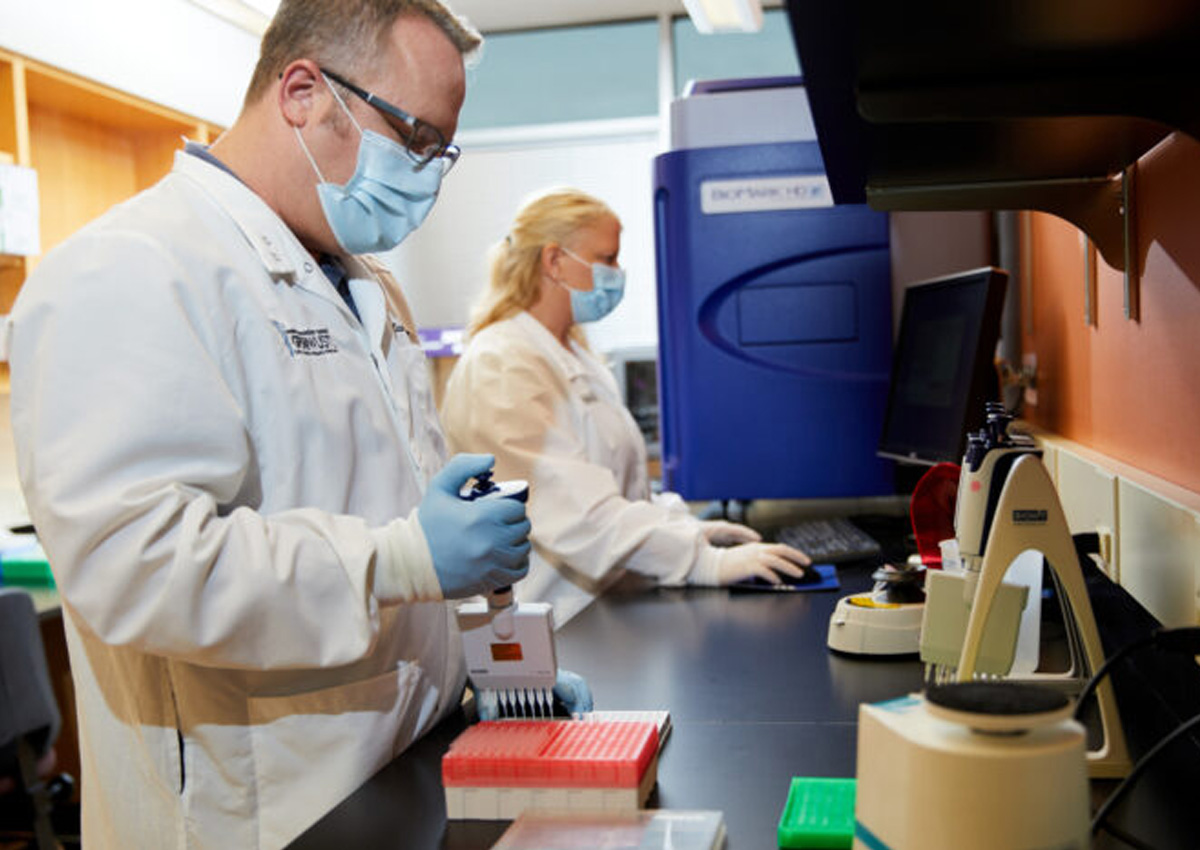
Washington University Saliva Test for COVID-19 Faster and Easier
September 2, 2020| |
Researchers at the Washington University School of Medicine in St. Louis have developed a new saliva test to detect the SARS-CoV-2 virus faster and easier. The results from this diagnostic test are available in a few hours, and therefore easily communicated to people who were tested within the day. The test does not require special swabs or reagents that may be in short supply because it is highly sensitive to detecting even tiny levels of virus in a saliva sample.
The saliva test was developed by a large, highly skilled team from the Department of Genetics and the McDonnell Genome Institute, both at Washington University School of Medicine in collaboration with the biotechnology company Fluidigm. The test could help simplify and expand the availability of COVID-19 diagnostic testing across broad populations. This test does not rely on the extraction of viral RNA to detect the virus, which his a time-consuming and expensive process. It could be scaled up easily, in part because people can collect their own saliva samples, relieving health-care workers of the need to conduct sample collection as they do for nasal and throat swab tests.
The test allows individuals to collect saliva samples themselves by spitting into a small test tube, eliminating the need for healthcare workers to insert long nasal swabs deep into the nasal cavity. This allows the rapid testing of large numbers of people. The researchers have verified the saliva test against the standard nasal swab tests and found that the new test results aligned with the standard test results — whether positive or negative — in all cases.
For more details, read the news release from Washington University School of Medicine in St. Louis.
| |
You might also like:
- Hospital in Israel Starts Trials for the Fastest COVID-19 Test
- Team of Experts Develop Nasal Spray Against COVID-19 Virus
- Canadian Researchers Use Algae to Produce COVID-19 Test Kits
Biotech Updates is a weekly newsletter of ISAAA, a not-for-profit organization. It is distributed for free to over 22,000 subscribers worldwide to inform them about the key developments in biosciences, especially in biotechnology. Your support will help us in our mission to feed the world with knowledge. You can help by donating as little as $10.
-
See more articles:
-
News from Around the World
- Genomes of Three Most Troublesome Agricultural Weeds Published
- Scientists Discover First Known Gene to Impart Resistance to Speck Disease of Tomatoes
- UC Davis-Led Study Finds Missing Link in Evolutionary History of Rubisco
- Asia-Pacific Sets Responses and Recovery Plans on COVID-19 and Hunger
-
Research Highlights
- Plant Enzymes Found to Have a Vital Role in Flood-Resistance Adaptability
- Experts Review Potential of Plant-Based Edible Vaccines
-
Plant
- South Korea Promotes the First Genome-edited Food Crop
- South Korea's First Genome Edited Petunia Approved in the U.S.
- Animal Biotech Offers Potential in Addressing Food Insecurity
-
Health
- Map Catalogs Effects of Coronavirus Mutations
- Pregnant Women Face More Risks from COVID-19
- Washington University Saliva Test for COVID-19 Faster and Easier
-
Read the latest: - Biotech Updates (February 18, 2026)
- Gene Editing Supplement (January 28, 2026)
- Gene Drive Supplement (February 22, 2023)
-
Subscribe to BU: - Share
- Tweet

